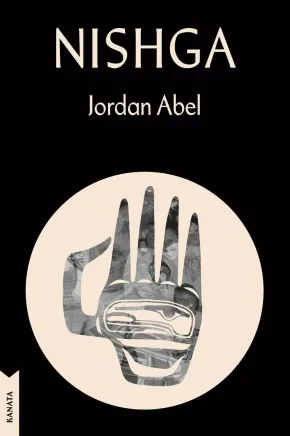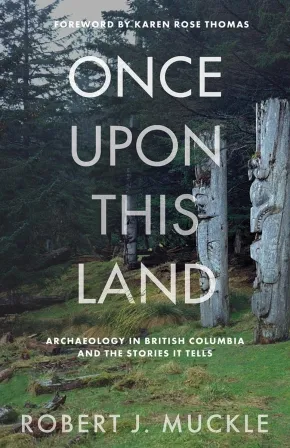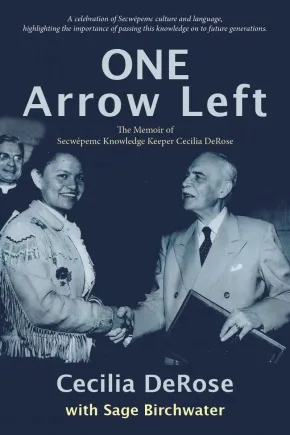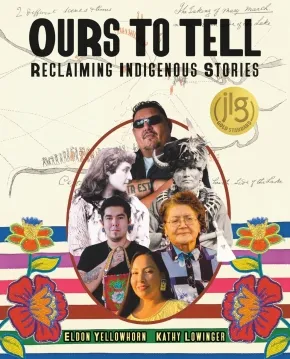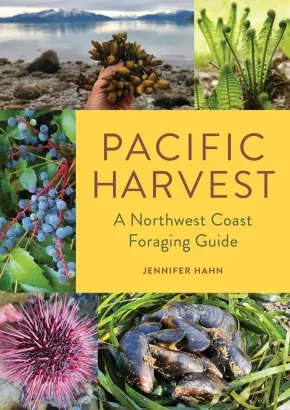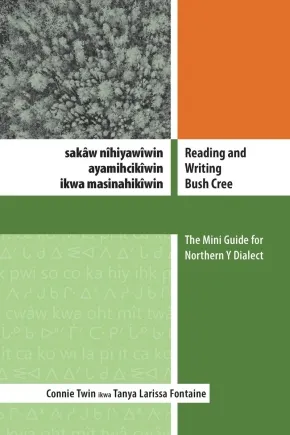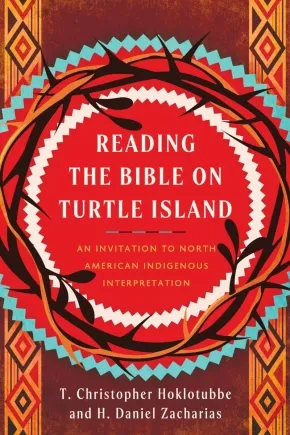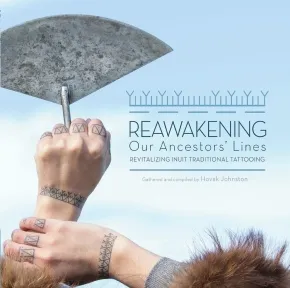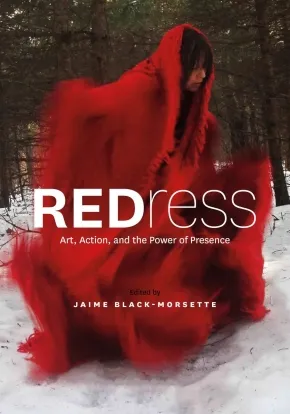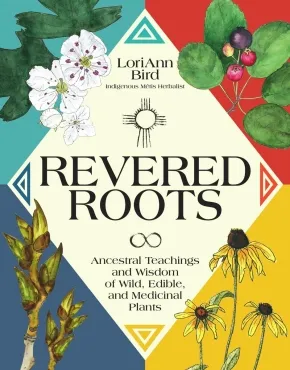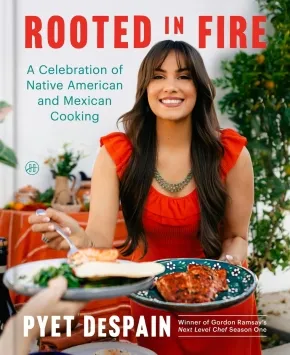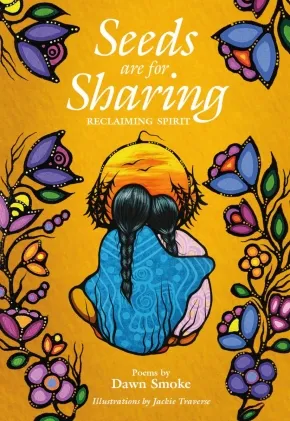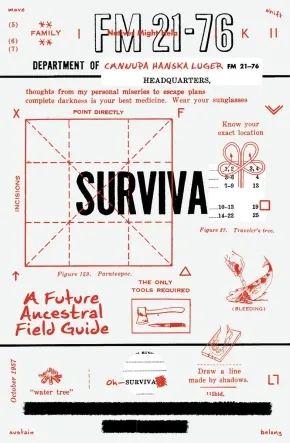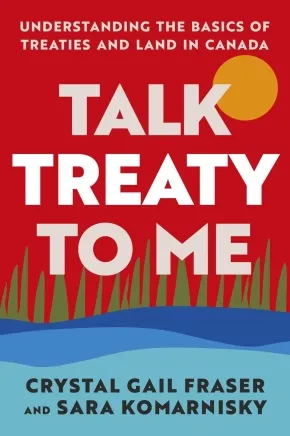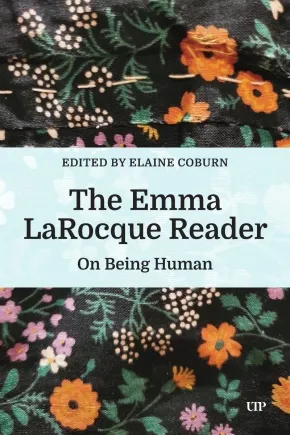
Non-Fiction
31
-
45
of
752 Results;
Sort By
Go To
of 51
Nishga: Kanata Classics Edition
$22.00
Format:
Paperback
Text Content Territories:
Indigenous Canadian; First Nations; Nisga'a;
Reading Level: N/A
ISBN / Barcode: 9780771023491
Synopsis:
Synopsis:
Part of the inaugural Kanata Classics list, with a new introduction by David Chariandy, NISHGA is a groundbreaking, deeply personal, and devastating autobiographical meditation that attempts to address the complicated legacies of Canada’s residential school system and contemporary Indigenous existence.
As a Nisga'a writer, Jordan Abel often finds himself in a position where he is asked to explain his relationship to Nisga'a language, Nisga'a community, and Nisga'a cultural knowledge. However, as an intergenerational survivor of residential school--both of his grandparents attended the same residential school--his relationship to his own Indigenous identity is complicated to say the least.
NISHGA explores those complications and is invested in understanding how the colonial violence originating at the Coqualeetza Indian Residential School impacted his grandparents' generation, then his father's generation, and ultimately his own. The project is rooted in a desire to illuminate the realities of intergenerational survivors of residential school, but sheds light on Indigenous experiences that may not seem to be immediately (or inherently) Indigenous.
Drawing on autobiography and a series of interconnected documents (including pieces of memoir, transcriptions of talks, and photography), NISHGA is a book about confronting difficult truths and it is about how both Indigenous and non-Indigenous peoples engage with a history of colonial violence that is quite often rendered invisible.
Reviews
“With NISHGA, Jordan Abel has reinvented the memoir, incorporating personal anecdotes, archival footage, legal documentation, photos and concrete poetry to create an unforgettable portrait of an Indigenous artist trying to find his place in a world that insists Indigeneity can only ever be the things that he is not. Abel deftly shows us the devastating impact this gate-keeping has had on those who, through no decisions of their own, have been ripped from our communities and forced to claw their way back home, or to a semblance of home, often unassisted. This is a brave, vulnerable, brilliant work that will change the face of nonfiction, as well as the conversations around what constitutes Indigenous identity. It's a work I will return to again and again.” —Alicia Elliott, author of A Mind Spread Out on the Ground
“In NISHGA, Jordan Abel puts to use the documentary impulse that has already established him as an artist of inimitable methodological flair. By way of a mixture of testimonial vignettes, recordings of academic talks, found text/art, and visual art/concrete poetry, Abel sculpts a narrative of dislocation and self-examination that pressurizes received notions of “Canada” and “history” and “art” and “literature” and “belonging” and “forgiveness.” Yes, it is a book of that magnitude, of that enormity and power. By its Afterword, NISHGA adds up to a work of personal and national reckoning that is by turns heartbreaking and scathing.” —Billy-Ray Belcourt, author of NDN Coping Mechanisms and A History of My Brief Body
"This is a heart-shattering read, and will also be a blanket for others looking for home. NISHGA is a work of absolute courage and vulnerability. I am in complete awe of the sorrow here and the bravery. Mahsi cho, Jordan.” —Richard Van Camp, author of Moccasin Square Gardens
“Jordan Abel digs deeply into the questions we should all be asking. Questions that need no explanation but ones that require us to crawl back into our bones, back into the marrow of our understanding. NISHGA is a ceremony where we need to be silent. Where we need to listen.” —Gregory Scofield, author of Witness, I Am
Educator & Series Information
This edition of Nishga is part of the Kanata Classics series, which celebrates timeless books that reflect the rich and diverse range of voices in Canadian literature.
Additional Information
304 pages | 5.54" x 8.26" | Paperback
Once upon This Land: Archaeology in British Columbia and the Stories It Tells
$29.95
Format:
Paperback
Text Content Territories:
Indigenous Canadian;
Reading Level: N/A
ISBN / Barcode: 9780774881081
Synopsis:
Synopsis:
With evidence of human habitation dating back to the last ice age, British Columbia boasts a fascinating array of archaeological sites. In this thoroughly up-to-date survey, professional archaeologist Robert Muckle takes readers to some exciting locations to explain what archaeology is (and isn’t), how research is undertaken in BC, and what it contributes to our broader understanding of human history.
Once upon This Land introduces readers to some of the most notable archaeological investigations in the province, including footprints left in mud on Calvert Island 13,000 years ago, the remains of a First Nations village near Lillooet, and the body of a man frozen in ice for centuries in the Tatshenshini region. He also explores more recent phenomena, such as a First World War internment camp near Fernie, a Japanese logging camp in North Vancouver, shipwrecks, airplane crashes, and even the remnants of COVID-19 left behind in urban landfills.
This unique book will appeal to readers who want to understand how and where archaeology happens in British Columbia, including those interested in a career in the field. It is also for those who would like to explore and know more about the province’s archaeological sites and history.
Reviews
"May this book offer all who read it a glimmer of understanding of the fourteen thousand years of documented relationships between Indigenous peoples and the land which has sustained us."— From the foreword by archaeologist Karen Rose Thomas
"Bob Muckle’s beginner’s guide to archaeology in what is now British Columbia requires no experience with the discipline to grasp vocabulary and ideas currently used by archaeologists. His clear, plain-language narrative peels back the layers of earth to reveal a story contained in the soil of this province." — Eldon Yellowhorn, Indigenous Studies, Simon Fraser University
"I have always wished for an archaeology of BC book like this that I could use in teaching my own classes. While the writing style is accessible and never condescending, Once upon This Land will help inquisitive readers appreciate just how complex and vast the archaeological history of the northwest part of North America really is." — Brian Pegg, Department of Anthropology, Kwantlen Polytechnic University
Educator Information
Table of Contents
Foreword: An Indigenous Archaeologist’s Perspective / Karen Rose Thomas
Introduction
1 Archaeology as Storytelling and a Profession
2 The Distant Past: The Ice Age to 5,000 Years Ago
3 The Human Story: 5,000 to 200 Years Ago
4 Recent Times: The 1800s and 1900s
5 Archaeology in Contemporary Times
Epilogue: Ten Important Things to Remember
Glossary; Further Reading; Index
Additional Information
222 pages | 5.50" x 8.50" | 14 colour photos, 15 b&w photos, 2 colour illus., 2 b&w illus., 1 map | Paperback
One Arrow Left: The Memoir of Secwepemc Knowledge Keeper
$26.00
Format:
Paperback
Reading Level: N/A
ISBN / Barcode: 9781773861586
Synopsis:
Synopsis:
Secwépemc elder, matriarch and knowledge-keeper Cecilia DeRose presents her powerful, heartfelt and inspiring memoir of overcoming racism and adversity—One Arrow Left is a celebration of Secwépemc culture, language and the importance of passing on this knowledge to future generations.
Born in 1935 in the village of Esket, Cecilia DeRose was welcomed into a loving, supportive Secwepemc family. Growing up in an isolated meadow, Cecilia was the fourth of ten children, spending much of her early years caring for younger siblings. Ranch life was in their blood; Cecilia’s mother, Amelia Joe, was the progeny of a white ranch hand, Joe Smith, and her Secwepemc mother, Martha Williams; her father, Matthew Dick, was well-known in the Williams Lake rodeo circuit and played for the famous Alkali Braves hockey team. Navigating the complexities of being a mixed-race family, both within and outside of the Secwepemc community, would be a lifelong source of tension, which Cecilia handles with grace, tenacity and humour.
Like their parents before them, Cecilia and her siblings were sent to St. Joseph’s Mission residential school near Williams Lake. At seven years old she eagerly awaited her turn to join her older sister and brother at the mission, where she could escape the drudgery of washing diapers and caring for her younger siblings at home. Nothing could have prepared her for the cruelty of institutionalized life. Dreams of an education that might lead to a career as a teacher, lawyer, or journalist were dashed. Residential school was hell, and Cecilia was left with the scars to prove it.
In 1956, Cecilia married non-Indigenous ranch hand Lenny DeRose and lost her Indigenous status. Nevertheless, on the insistence of her father Matthew Dick, Cecilia remained true to her Secwepemc roots and traditions. She eventually regained her status and became an ambassador of Secwepemc language and cultural practices. As she raised her own six children, she took great care to bestow in them the cultural teachings of the Secwepemc identity. She eventually taught the Secwepemcstin language in the public-school system, fulfilling her dream of teaching and reinforcing her belief that “we have one arrow left in our quiver and that’s education—we must use it wisely.”
Today, Cecilia is recognized nationally as an Indigenous knowledge keeper. She has provided cross-cultural training for hospitals, courts, and law enforcement institutions, and shared her knowledge on projects ranging from ethnobotany research to culturally safe elder care. In 2018, she received the Indspire Award for Culture, Heritage and Spirituality. In 2024, she was honoured by Thompson Rivers University with a Doctor of Letter, honoris causa, for her indispensable contributions to language revitalization.
Additional Information
224 pages | 6.00" x 9.00" | Paperback
Ours to Tell: Reclaiming Indigenous Stories
$16.99
Format:
Paperback
Text Content Territories:
Indigenous American; Indigenous Canadian;
ISBN / Barcode: 9781773219547
Synopsis:
Synopsis:
A wide-ranging anthology that shines a light on untold Indigenous stories as chronicled by Indigenous creators, compiled by the acclaimed team behind What the Eagle Sees and Sky Wolf’s Call.
For too long, stories and artistic expressions from Indigenous people have been written and recorded by others, not by the individuals who have experienced the events.
In Ours to Tell, sixteen Indigenous creators relate traditions, accounts of historical events, and their own lived experiences. Novelists, poets, graphic artists, historians, craftspeople, and mapmakers chronicle stories on the struggles and triumphs lived by Indigenous people, and the impact these stories have had on their culture and history. Some of the profiles included are:
- Indigenous poet E. Pauline Johnson
- acclaimed novelist Tommy Orange
- brave warrior Standing Bear
- poet and activist Rita Joe
With each profile accompanied by rich visuals, from archival photos to contemporary art, Ours to Tell brilliantly spotlights Indigenous life, past and present, through an Indigenous lens. Because each profile gives an historical and cultural context, what emerges is a history of Indigenous people.
Educator Information
Recommended for ages 12+.
Table of Contents
A Note about Language and Terms
Introduction: Ours to Tell
Part One: We Tell Our Story in Images and Symbols
Part Two: We Report the Story
Part Three: Our History Is in Our Poems, Songs, and Written Stories
Part Four: Our Stories Bear Witness
Part Five: Our Hands Tell Our Story
Afterword: Our Stories Go On
Sources
Index
Additional Information
136 pages | 7.50" x 9.25" | Paperback
Pacific Harvest: A Northwest Coast Foraging Guide
$40.95
Format:
Paperback
Text Content Territories:
Indigenous Canadian; Indigenous American;
Reading Level: N/A
ISBN / Barcode: 9781680516685
Synopsis:
Synopsis:
This guide:
- Highlights 70-plus edible species including seaweeds, beach vegetables, shellfish, mushrooms, berries, trees, ferns, and wild and weedy greens
- Includes more than 60 recipes, plus tips for enjoying this natural abundance
- Includes key sections describe sustainable harvesting practices
Pacific Harvest, written by expert forager and guide Jennifer Hahn, introduces both novice and more experienced foragers to the Pacific Coast’s ample and diverse edible species. Recognizing your local edible berries, flowers, greens, roots, tree parts, mushrooms, seaweeds, beach vegetables, and shellfish is a passport to a comforting sense of place. Hahn shares immersive descriptions of her foraging adventures as well as full-color photos to make identifying these species easy and enjoyable. Each featured food listing includes common names, taxonomy, primary location, description, harvesting details, and culinary tips for transition from the wild to the kitchen table. Select listings call out notable nutrition and wellness benefits, along with contemporary research on conservation status.
This coastal foraging guide highlights authentic Indigenous harvesting practices including profiles of Indigenous leaders in the traditional foods movement. Hahn emphasizes a sustainable approach to foraging, reminding readers what other beings also depend on these plants and animals as food and shelter sources.
Pacific Harvest includes dozens of recipes featuring foraged foods, ranging from no-fuss delights like Salal Berry Scones and Kelp-Wrapped Salmon to comfort foods like Fiddlehead Quiche and Horse Clam Stir-Fry.
Additional Information
360 pages | 6.00" x 8.50" | 175 Color Photos | Paperback
Reading and Writing Bush Cree: The Mini Guide for Northern Y Dialect
$34.95
Format:
Paperback
Text Content Territories:
Indigenous Canadian; First Nations; Cree (Nehiyawak); Woodland Cree;
Reading Level: N/A
ISBN / Barcode: 9781550599855
Synopsis:
Synopsis:
A Vital Resource to Preserve, Teach, and Live the Bush Cree Language
Reading and Writing Bush Cree is a heartfelt, practical, and approachable guide for fluent speakers and Cree language educators who want to learn to read and write sakâw nîhiyawîwin—Bush Cree, or the Northern Y dialect. Written by Connie Twin, a first-language speaker from Bigstone Cree Nation in northern Alberta, and Tanya Fontaine, a dedicated Cree language learner and educator, this book bridges oral fluency with written literacy to support language preservation and revitalization.
Through personal stories and cultural insight, the authors guide readers into the structure of Cree grammar and the use of Standard Roman Orthography (SRO). With clear examples of both fluent and full written forms, this book also sheds light on how Cree sounds are represented in writing and highlights important differences between Northern and Southern Y dialects.
This is more than a how-to book—it’s a call to keep sakâw nîhiyawîwin alive for future generations.
Features
- A first-language speaker’s perspective on learning to read and write Cree
- Focus onsakâw nîhiyawîwin (Bush Cree / Northern Y dialect)
- A step-by-step introduction to Standard Roman Orthography (SRO) and syllabics
- Need-to-know basics of Cree reading, writing, grammar, and Y dialect variation
Additional Information
116 pages | 6" x 9" | Paperback
Reading the Bible on Turtle Island: An Invitation to North American Indigenous Interpretation
$39.49
Format:
Paperback
Text Content Territories:
Indigenous American; Indigenous Canadian;
Reading Level: N/A
ISBN / Barcode: 9781514007563
Synopsis:
Synopsis:
Join the dance of North American Indigenous interpretations of Christian Scripture
In Reading the Bible on Turtle Island, Indigenous scholars Chris Hoklotubbe and Danny Zacharias explore what it means to read the Bible from the lens of Indigenous peoples in North America. Exploring the intersection of Scripture, Cultural Traditions, Hearts and Minds, and Creation, they affirm Creator's presence with Indigenous people since the beginning. By recovering these rich histories, this book offers a fresh reading of Scripture that celebrates the assets, blessings, and insights of Indigenous interpretation.
Indigenous culture has often been dismissed or deemed problematic within Western Christian circles, and historical practices have often communicated that Indigenous worldviews have little to offer the church or its understanding of Scripture. Hoklotubbe and Zacharias challenge this perspective, reasserting the dignity of these cultures that were condemned through colonial practices and showing how Indigenous interpretations bring invaluable insights to all of God’s people.
In Reading the Bible on Turtle Island, Hoklotubbe and Zacharias
- Affirm the dignity and value of Indigenous cultures and their contributions to hermeneutics.
- Explore the intersection of the Bible with Indigenous traditions.
- Delve deeply into the stories of Scripture alongside the complex histories of Indigenous communities in North America.
- Celebrate the unique blessings and insights of Indigenous interpretation.
- Offer a fresh, transformative reading of the Bible that speaks to all of God’s people.
Reading the Bible on Turtle Island is a vital resource for scholars who are interested in the intersection of biblical studies and social location, who are seeking to explore Scripture through an Indigenous hermeneutic, or who desire to learn more about the contributions of Indigenous worldviews to Biblical interpretation.
Reviews
"We have been waiting for a book like this—one that presents indigenous biblical interpretation. T. Christopher Hoklotubbe and Daniel Zacharias call their approach to biblical interpretation Turtle Island Hermeneutics. I call it groundbreaking, urgent, and necessary at this present moment. Now students studying the Bible in seminary or college will have a text that will help them do what few books on interpretation can do—take the dirt, the water, the air, our animal kin, and of course, indigenous thought and life seriously. We are now in a new day for biblical scholarship." — William James Jennings, Andrew W. Mellon Professor of Systematic Theology and Africana Studies at Yale University Divinity School
"Some years ago, I was told that Indigenous contributions to biblical scholarship would, at best, be superficial. The real work, after all, had already been done by European scholars. Reading the Bible on Turtle Island justifies my contention that this was not so. T. Christopher Hoklotubbe and Daniel Zacharias unpack Indigenous understandings of the biblical narrative for us in profoundly earthy and culturally complex ways. For the first time ever, many Indigenous people have read themselves into the biblical story and, together with the authors, have answered Lamin Sanneh's 2003 question, 'Whose religion is Christianity?' 'It's ours,' they have said!"— Terry LeBlanc, director emeritus and elder in residence of NAIITS: An Indigenous Learning Community
"Reading the Bible on Turtle Island introduces us to the riches of Indigenous interpretation of Scripture and invites us to gather around the council fire and learn from the ongoing discussion Indigenous disciples of Jesus are having about how to 'seek Creator in the Good Medicine Way of Jesus.' T. Christopher Hoklotubbe and H. Daniel Zacharias not only create a dialogue between biblical scholarship, Indigenous history and wisdom, and ongoing debates about how to relate the gospel to culture, they do so in a way that is simultaneously accessible, deeply moving, gracious enough to create room for disagreement and ongoing debate, and occasionally laugh-out-loud funny. Yet the book also offers a challenge, that the path to the healing of the nations and the Western church includes learning from Indigenous disciples who bear witness to the good word of Creator-made-flesh."— Michael J. Rhodes, author of Just Discipleship and lecturer in Old Testament at Carey Baptist College
"How we read ourselves into the Bible shapes the theology we develop. This book offers all Christians another reading, a reading that takes our stories seriously and provides an opportunity to develop an Indigenous theology rather than simply reconciling ourselves to a theology rooted in European priorities." — Patty Krawec, author of Becoming Kin: An Indigenous Call to Unforgetting the Past and Reimagining Our Future and Bad Indians Book Club: Reading at the Edge of a Thousand Worlds
Additional Information
240 pages | 6.00" x 9.00" | Paperback
Reawakening Our Ancestors' Lines: Revitalizing Inuit Traditional Tattooing (PB)
$24.95
Format:
Paperback
Text Content Territories:
Indigenous Canadian; Inuit;
Reading Level: N/A
ISBN / Barcode: 9781772275698
Synopsis:
Synopsis:
For thousands of years, Inuit practiced the traditional art of tattooing. Created the ancient way, with bone needles and caribou sinew soaked in seal oil, sod, or soot, these tattoos were an important tradition for many Inuit women, symbols etched on their skin that connected them to their families and communities. But with the rise of missionaries and residential schools in the North, the tradition of tattooing was almost lost. In 2005, when Angela Hovak Johnston heard that the last Inuk woman tattooed in the old way had died, she set out to tattoo herself in tribute to this ancient custom and learn how to tattoo others. What was at first a personal quest became a project to bring the art of traditional tattooing back to Inuit women across Nunavut, starting with Johnston’s home community of Kugluktuk. Collected in this beautiful book are moving photos and stories from more than two dozen women who participated in Johnston’s project. Together, these women have united to bring to life an ancient tradition, reawakening their ancestors’ lines and sharing this knowledge with future generations.
Awards
- 2018 NorthWords Book Prize Winner
Reviews
"This gorgeous photographic essay on the Inuit Tattoo Revitalization Project is a deeply personal and affirming work about learning and preserving traditions-and reclaiming what residential schools tried to destroy."-School Library Journal
Additional Information
72 pages | 10.00" x 10.00" | Paperback
REDress: Art, Action, and the Power of Presence
$38.00
Editors:
Format:
Paperback
Text Content Territories:
Indigenous Canadian; First Nations; Inuit; Métis;
ISBN / Barcode: 9781774921388
Synopsis:
Synopsis:
A powerful anthology uniting the voices of Indigenous women, Elders, grassroots community activists, artists, academics, and family members affected by the tragedy of Missing and Murdered Indigenous Women, Girls, and Two-Spirit people from across Turtle Island.
In 2010, Métis artist Jaime Black-Morsette created the REDress Project—an art installation consisting of placing red dresses in public spaces as a call for justice for Missing and Murdered Indigenous Women, Girls, and Two-Spirit people (MMIWG2S). Symbolizing both absence and presence, the red dresses ignite a reclamation of voice and place for MMIWG2S. Fifteen years later, the symbol of the empty red dress endures as families continue to call for action.
In this anthology, Jaime Black-Morsette shares her own intimate stories and memories of the REDress Project along with the voices of Indigenous women, Elders, grassroots community activists, artists, academics, and family members affected by this tragedy. Together they use the power of their collective voice to not only call for justice for MMIWG2S, but honour Indigenous women as keepers and protectors of land, culture, and community across Turtle Island.
Reviews
“REDress is a must-read for anyone who seeks to truly understand the hearts of those most impacted by MMIWG2S. For allies and interested citizens, this anthology shows how Canada emboldened and fostered a society to inflict genocide against Indigenous women, girls, and Two-Spirited and transgendered relatives.”—Sheila North, Former Grand Chief, Creator of hashtag #MMIW, Mother and Kookom
“REDress is a love offering to MMIWG2S and those who are intimately impacted by this epidemic.”—Cathy Mattes, curator, writer, and Associate Professor in History of Art at the University of Winnipeg
"This is a moving look at how women in indigenous communities are using art and activism to keep the the issue at the forefront, despite the lack of progress in solving or preventing the crimes.... A content warning signals that the book contains language concerning violence against women. I’d offer this to activist artists or anyone interested in justice for indigenous communities, in high school and up." - Youth Services Book Review - Stephanie Tournas, Retired librarian, Cambridge, MA
Educator Information
Content Warning: This book's content deals with violence against Indigenous women, girls, and Two-Spirit people; genocide; death; intergenerational trauma; suicide; and residential schools.
Big Ideas: Diverse and Inclusive Representation: Identity; Land-Based or Place-Based Learning; Social-Emotional Learning: Death, Grief, Bereavement; Social-Emotional Learning: Self Expression, Creative Writing, Art; Social Justice: Citizenship and Social Responsibility; Social Justice: Impacts of Colonization and Colonialism; Social Justice: MMIWG2S; Social Justice: Prejudice and Racism.
Edited by: Jaime Black-Morsette
Contributions by: KC Adams, Mackenzie Anderson Linklater, Marjorie Beaucage, Christi Belcourt, Judy Da Silva, Karine Duhamel, Deantha Edmunds, Cambria Harris, Jaimie Isaac, Casey Koyczan, Crystal Lepscier, Lee-Ann Martin, Diane Maytwayashing, Cathy Merrick, Sherry Farrell Racette, Gladys Radek, Zoey Roy, Jennifer Lee Smith, and Patti Beardy.
Additional Information
168 pages | 7.00" x 10.00" | Paperback
Revered Roots: Ancestral Teachings and Wisdom of Wild, Edible, and Medicinal Plants
$32.99
Format:
Hardcover
Text Content Territories:
Indigenous Canadian; Métis;
Reading Level: N/A
ISBN / Barcode: 9780760393253
Synopsis:
“Revered Roots is a profound journey that gracefully and colorfully intertwines Indigenous wisdom with practical plant knowledge, offering a guide to reconnect with Nature’s green gifts. LoriAnn's heartfelt teachings inspire readers to honor and deepen their sacred relationship with the Earth.”—Dr. Kelly Ablard, Founder and CEO, Airmid Institute
Synopsis:
With Indigenous Métis herbalist LoriAnn Bird as your guide, connect with the ancestral wisdom of over 90 wild edible and medicinal plants from across North America.
A purposeful and powerful reference to the lessons, nourishment, healing, and history of our “plant teachers,” Revered Roots shares guidance on exploring, gathering, and reclaiming these long-revered plants as food and medicine. Separated into two sections, LoriAnn first reveals her own journey to understanding and respecting our plant elders. She offers teachings and lessons about remembering our relationship to the plants around us and our responsibility to the earth that sustains us.
The second part of the book is filled with insightful illustrated plant profiles detailing the identification, uses, and Indigenous folklore of some of the continent’s most treasured ancestral plants. Included are edible and medicinal bark, berries, and buds from trees and shrubs, as well as foliage, flowers, and fronds from herbs, “weeds,” and wildflowers; some native to the continent, others introduced generations ago.
Learn about the gifts our Rooted Nation of plants has to offer, including:
- Evergreen tips from spruces, pines, and firs
- Hawthorn berries, leaves, and flowers
- Plantain seeds and foliage
- Oswego tea leaves and blooms
- Slippery elm bark
- Motherwort flowers, stems, and leaves
- Black cohosh roots and rhizomes
- Marshmallow root
- Cottonwood buds and bark
- Plus dozens more
Reclaiming our natural rhythms and connections to the earth we walk on is essential to our health and well-being, both as individuals and as a community. One simple way to do that is by appreciating, respecting, and seeking to understand the plants around us.
Reviews
“With elegant reverence, LoriAnn Bird weaves connections among ancestral herbalist teachings from several lineages. She invites us into our own personal journey with plant medicine, giving us lessons on how to respect and honor the power of plants and their human knowledge keepers. She carefully and lovingly attributes each piece of teaching to its source. This book is a powerful legacy that we need more than ever at this time of healing and reconciliation. May its words fly into the world and land softly in the hearts of all who need them.”—Lori Weidenhammer, author of Victory Gardens for Bees: A DIY Guide to Saving the Bees
“Revered Roots is truly an essential work of art that imparts the sacredness of each plant, in each harvesting step and in the interspecies relationships with all of life. The authentic and grounded nature of LoriAnn Bird comes through the pages to connect us with a sense of belonging and reverence.”—Katrina Blair, founder of Turtle Lake Refuge; author of The Wild Wisdom of Weeds
“LoriAnn Bird, in her book Revered Roots, creates a beautiful story about our plant relatives with our history woven between the leaves of each page. She highlights each being and allows them to tell their story, including who they are, their benefits, uses, ways to eat, look-alikes, and what makes them unique. It's like looking at an old family album and finally knowing who each person is and what their spirit has to offer the world. The book, complete with information about our relatives, wrapped its warm arms around me as I nestled in to read each page, excited to learn more about family. LoriAnn’s voice provides a continuous honoring of our ancestors, our brilliance, and our resilience.”—Jenna Jasek, Shuswap (Kenpesq't) Band member, Director of Indigenous Learning, The Outdoor Learning School
“Revered Roots is a profound journey that gracefully and colorfully intertwines Indigenous wisdom with practical plant knowledge, offering a guide to reconnect with Nature’s green gifts. LoriAnn's heartfelt teachings inspire readers to honor and deepen their sacred relationship with the Earth.”—Dr. Kelly Ablard, Founder and CEO, Airmid Institute
“LoriAnn Bird weaves stories of plants into a tapestry of vivid imagery and teachings, allowing us to experience earth medicine in a way we never have before. Like a family gathered around the table exchanging stories of cherished ones, Lori Ann’s plant musings draw us into an intimate connection with our More-Than-Human Kin. From a small moment in a back alley in East Vancouver to hundreds of years of history from around the world, Revered Roots feels like an equal blend of encyclopedia, history book, and love letter. Get to know plants in a truly profound way through the words of a master storyteller, sister, friend, mother, and plant protector.”—Stephanie Rose, founder of Garden Therapy; author of Garden Alchemy and The Regenerative Garden
“This is a beautiful book on every level; the gorgeous drawings and painting of plants, the photography and images throughout, but also the words and the feelings on each page. Intensely moving and remarkably practical, deeply personal and filled with worldly wisdom, this book offers the reader a glimpse into a whole new way of seeing the nature. With a plant centered focus, through a biophilia lens, the author invites us to re-evaluate and re-vision our own relationships with plants and the natural world. This book is destined to be a classic.”—Chanchal Cabrera MSc, FNIMH, Medical Herbalist; Horticulture Therapist; author of Holistic Cancer Care
“LoriAnn has put a lifetime of collected knowledge into a work that connects people to plants in ways both honorable and honest. Revered Roots extols both the practical and sacred uses of the plants we see around us, while also nurturing our respect for our More-Than-Human Kin and our responsibility to the greater world. It has been a pleasure to be a teacher and herbal mentor to LoriAnn for many years.”—Don Ollsin, Master Herbalist; Conscious Spiritual Elder, Alchemy of Aging; author of Pathways to Healing
Additional Information
240 pages | 8.00" x 9.55" | Hardcover
Rooted in Fire: A Celebration of Native American and Mexican Cooking
$43.50
Format:
Hardcover
Reading Level: N/A
ISBN / Barcode: 9780063304079
Synopsis:
Synopsis:
Next Level Chef winner Pyet De Spain celebrates her Mexican and Native American heritage in this collection of mouthwatering recipes, a vibrant fusion that ties us to the land and to one another.
Star chef Pyet DeSpain rose to prominence as the first winner of Gordon Ramsey’s Fox television show Next Level Chef. Now, in her debut cookbook, she shares the joy of cooking fueled by her burning passion for Native American and Mexican American cuisine. Rooted in Fire: A Celebration of Native American and Mexican Cooking is a tribute to her dual heritage—a gorgeously crafted celebration of the diversity of food and the stories, traditions, culture, and profound philosophies of Indigenous people that season each meal.
Pyet shows you how to incorporate a delicious range of key ingredients—from venison, dandelion greens, to sunchokes, bison, and native berries—into more than sixty fusion dishes. Family and friends will be excited to gather around the table to enjoy sweet and savory food such as:
- Three Sisters Salad
- Bison and Sweet Corn Soup
- Fry Bread
- Mexican Chocolate & Mezcal Cake
- Corn Silk and Honey Tea
- Wojapi BBQ Sauce
In addition to her inventive and palate pleasing recipes, Pyet invites home cooks to honor the seasons on our beautiful Earth and connect with essential foodways. “This is more than just a cookbook,” Pyet writes. “It’s giving a voice to Indigenous people, while also highlighting the fusion of my two cultures with fire and purpose.”
Reviews
"Pyet's talent is evident in every recipe in this book. The way she weaves her heritage into her dishes is extraordinary and I've seen it every day since the first time I tasted her work on Next Level Chef. Trust me, you're in for an absolute treat." — Gordon Ramsay
Pyet’s Rooted in Fire beautifully honors her Prairie Band of Potawatomi and Mexican heritage through food storytelling that is both personal and powerful. Her voice is heartfelt, her vision and dedication are clear, and her talent within the Indigenous food movement is undeniable. I’m so proud to see her shining as a modern-day Indigenous food warrior—this book marks an important chapter in her growing legacy." — Sean Sherman, Founder of The Sioux Chef/NATIFS.org and Author of The Sioux Chef’s Indigenous Kitchen and Turtle Island
Additional Information
288 pages | 7.38" x 9.12" | 128 four color food photographs | Hardcover
Seeds are for Sharing: Reclaiming Spirit
$20.99
Artists:
Format:
Paperback
Text Content Territories:
Indigenous Canadian; First Nations; Anishinaabeg; Ojibway; Haudenosaunee (Iroquois); Kanyen'keha:ka (Mohawk);
Reading Level: N/A
ISBN / Barcode: 9781778540592
Synopsis:
Synopsis:
"Never let anything or anyone stop you from following where your Spirit says it belongs. . ."
Spirit exists in everything on Mother Earth. If we are open to it, Spirit may guide us through even the darkest of moments.
In this genre-defying blend of poetry and story, Ojibway and Mohawk Elder Dawn Smoke shares all that lives within her heart, mind, and soul. As a young girl confronted with the anger and pain of being scooped from her birth family, Dawn bravely discovers her truth and a path towards healing. She is unwavering in her honesty, a protector of Mother Earth, and a fierce advocate against the oppression of Indigenous people.
Reclaiming what was taken is not an easy feat, yet in doing so, Dawn illuminates the Spirit all around us. This striking memoir, told in spoken word, speaks to the devastating realities of colonization and radiates with the resilience found within culture and community.
Additional Information
120 pages | 5.50" x 8.00" | Paperback
SURVIVA: A Future Ancestral Field Guide
$57.50
Format:
Paperback
Text Content Territories:
Indigenous American;
ISBN / Barcode: 9781961814264
Synopsis:
Synopsis:
An ambitious, world-envisioning work of Indigenous futurism.
Since 2015—through a proliferation of forms including sculpture, regalia, film, photography, poetry, painting, and installation—acclaimed multimedia artist Cannupa Hanska Luger has been weaving together strands of a new myth. Collectively referred to as Future Ancestral Technologies, this sprawling series of interrelated works seeks to reimagine Indigenous life and culture in a postcolonial world where space exploration has reduced and reconfigured the earth’s population.
Part graphic novel, part art book, SURVIVA: A Future Ancestral Field Guide offers readers a view beneath, beyond, and between the lines of Luger's ever-expanding artistic universe. In this ecstatically hybrid work, Luger transforms a 1970s military survival guide through poetic redaction, speculative fiction, and iterative line drawing—deftly surfacing and disrupting the colonial subconscious that haunts this vexed source text. An epic and timely meditation on planetary life in the midst of transformation, SURVIVA boldly presents an earth-based, demilitarized futuredream that foregrounds Indigenous knowledge as critical to humanity’s survival
SURVIVA is the first title from Aora Books, a publishing imprint dedicated to exploring transformational thought and culture that transcends borders, disciplines, and traditions. Rooted in an ethos of polyvocality and planetary consciousness, Aora publishes works that forge bold connections across time, place, ideas, and beings often seen as separate.
Reviews
"SURVIVA offers Indigenous wisdom for a shared future built on ancestral knowledge in radical relation. This is a survival guide like none other." —Candice Hopkins, curator of the Forge Project
"SURVIVA boldly reimagines our conceptions of time and history, challenging our collective narratives and pushing us to rethink the art of survival through a lens of transformation."—Hank Willis Thomas, artist and cofounder of For Freedoms
"Cannupa Hanska Luger has created a wondrous book of survivance, a story to carry in pocket and study at every opportunity. At once a dystopia (earth is near destroyed) and a postcolonial fantasy (the colonizers abandon the planet for good), SURVIVA is a work of artistic brilliance that draws our attention to the simultaneity of ruins and futures. Rich with dreampower and evocation, these pages illustrate the mysteries of space-time, the dissolution of boundaries, and the relational universe described by Indigenous quantum mechanics. Read carefully, SURVIVA has the power to bend time itself, lifting us from past and present into futures innumerable."—Philip J. Deloria, Leverett Saltonstall Professor of History at Harvard University and author of Playing Indian
Additional Information
162 pages | 5.44" x 8.31" | original line drawings & ecopoetic fragments - reminiscent of 1970s diy photocopy culture | Paperback
Talk Treaty to Me: Understanding the Basics of Treaties and Land in Canada
$22.99
Format:
Paperback
Text Content Territories:
Indigenous Canadian;
Reading Level: N/A
ISBN / Barcode: 9781443471169
Synopsis:
Synopsis:
An essential and easy-to-read guide to treaties, Indigenous sovereignty, and land for all Canadians
Treaties cover much of Canada. Some were established thousands of years ago, with land and animals, and others date back to the time when Europeans first arrived in North America. These agreements make it possible for all of us to live, work, play, and profit on these lands. Additionally, treaties have profoundly shaped the relationship between Indigenous and non-Indigenous people. In Talk Treaty to Me, Crystal Gail Fraser and Sara Komarnisky untangle the complexities of treaties and set a path forward for greater understanding of all our roles, rights, and responsibilities. In this accessible, clear, and concise book, they discuss:
· Treaties among and between Indigenous Peoples
· The history of treaty-making between Indigenous Peoples and Britain, then Canada, from the very beginning to the present day
· Concepts like Métis scrip, modern land claims, Indigenous sovereignty, and unceded territory
· The (dis)honouring of treaties and the role of Canadian settler colonialism
· How the creation of Canadian borders interrupts Indigenous sovereignty and nationhood
· Important insights from gendered and queer perspectives on treaty and land
· The politics of land acknowledgements
· Reconciliation and Land Back movements
And more.
With a quick-reference timeline, maps, and black-and-white photographs throughout, Talk Treaty to Me concludes with a call to action and specific, tangible steps that all of us can take every day to support reconciliation.
Additional Information
256 pages | 5.25" x 8.00" | 40 b&w photos, spot illustrations & maps | Paperback
The Emma LaRocque Reader: On Being Human
$39.95
Editors:
Format:
Paperback
Text Content Territories:
Indigenous Canadian; Métis;
Reading Level: N/A
ISBN / Barcode: 9781487551889
Synopsis:
Synopsis:
Emma LaRocque was born in 1949 in Lac La Biche into a Cree-speaking Métis family. She grew up in a one-room, kerosene-lit log cabin built by her father. At the age of nine, she fought her parents to attend school, where she encountered English and the colonizer’s harmful stereotypes of Indigenous peoples. Confronting the contradictions of colonialism sparked her journey as a writer and scholar, as she sought to understand the dissonance between her identity and the world around her.
The Emma LaRocque Reader is a comprehensive collection of her most significant writings, poetry and prose, offering an intimate window into the mind of one of Canada’s foremost Indigenous scholars. Through her work, LaRocque provides profound insights into the intersections of colonialism, sexism, and racism in Canada, while also critically celebrating the beauty of her community and culture. In the afterword, she reflects on fifty years of challenging the colonial enterprise. A vital contribution to postcolonial literature, The Emma LaRocque Reader intertwines the personal and the political to explore what it means to be human, offering a powerful testament to Indigenous resistance, resilience, and vision.
This collection brings together the works of Métis scholar Emma LaRocque, offering a half-century of her poetry and prose, and shedding new light on Canada, colonialism, and Indigenous resistance.
Educator Information
Chapters
Foreword by Armand Ruffo
Preface by Elaine Coburn
Acknowledgments by Emma LaRocque
Acknowledgments of Permissions to Reprint
Introduction by Elaine Coburn
1975 A Personal Essay on Poverty (Excerpt from Defeathering the Indian)
1983 The Métis in English Canadian Literature
1988 On the Ethics of Publishing Historical Documents
1989 Racism Runs through Canadian Society
1990 Preface: Here Are Our Voices: Who Will Hear?
1990 Geese (poem)
1990 Nostalgia (poem)
1990 “Progress” (poem)
1990 The Red in Winter (poem)
1990 Incongruence (poem)
1990 Loneliness (poem)
1990 Beggar (poem)
1990 Tides, Towns, and Trains
1992 My Hometown, Northern Canada, South Africa (poem)
1993 Violence in Aboriginal Communities
1994 Long Way from Home (poem)
1996 The Colonization of a Native Woman Scholar
1996 When the Other Is Me: Native Writers Confronting Canadian Literature
2001 Native Identity and the Métis: Otehpayimsuak Peoples
2001 From the Land to the Classroom
2004 When the Wild West Is Me
2006 Sweeping (poem)
2006 Sources of Inspiration: The Birth of "For the Love of Words": Aboriginal Writers of Canada
2007 Métis and Feminist
2009 Reflections on Cultural Continuity through Aboriginal Women’s Writings
2010 Native Writers Reconstruct: Pushing Paradigms
2013 For the Love of Place – Not Just Any Place: Selected Métis Writings
2015 “Resist No Longer”: Reflections on Resistance Writing and Teaching
2016 Contemporary Métis Literature: Resistance, Roots, Innovation
2016 Colonialism Lived
2017 Powerlines (poem)
2022 Wehsakehcha, Comics, Shakespeare, and the Dictionary
2023 Afterword
Index
Additional Information
348 pages | 6.00" x 9.00" | Paperback
Sort By
Go To
of 51

